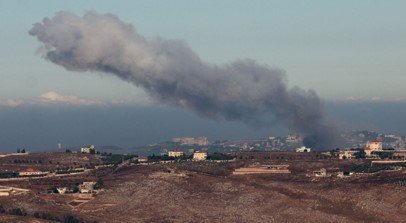Israel is ramping up its military operations against Hezbollah in Lebanon, with Israeli military chief Lt Gen Herzi Halevi announcing preparations for a possible ground invasion. As airstrikes continue to devastate Lebanon, Israel has mobilized two additional brigades of reservists.
“You hear the jets overhead; we have been striking all day. This is both to prepare the ground for your possible entry and to continue degrading Hezbollah,” Lt Gen Herzi Halevi told soldiers in northern Israel on Wednesday.
Prime Minister Benjamin Netanyahu, en route to New York for the U.N. General Assembly, made clear that Israel’s offensive would continue unabated. “Our policy is clear. We are striking Hezbollah with full force and will not cease until our goals are fully achieved,” he said, emphasizing the objective of securing northern Israel for the return of its residents.
The ongoing conflict has dashed hopes for a ceasefire, despite international calls led by the U.S. and European nations for a 21-day halt to allow for diplomatic negotiations. The Israeli military bolstered Netanyahu’s stance by confirming the recent airstrike that killed a key Hezbollah drone commander in Beirut, signaling a continued focus on high-value targets.
Netanyahu’s comments come amid a backdrop of relentless airstrikes that have significantly escalated tensions. Over the past week, Israel’s air campaign has intensified, with strikes targeting Hezbollah figures and infrastructure. In one notable strike in eastern Lebanon, 20 individuals, primarily Syrian migrants, were killed. The continued bombardment has led to significant casualties in Lebanon, with local health authorities reporting over 630 deaths, including civilians.
In response to the growing violence, Hezbollah has maintained its barrage of rocket fire into northern Israel, which has persisted for nearly a year. This near-daily exchange has led to the evacuation of tens of thousands from Israeli communities near the border.
The political implications of the conflict are also becoming apparent. One of Netanyahu’s coalition partners, Itamar Ben-Gvir of the far-right Jewish Power party, has threatened to withdraw support for the government if it agrees to a ceasefire. This political maneuvering reflects internal pressures within the Israeli government as it navigates the complex dynamics of military engagement and international diplomacy.
Hezbollah, on its part, has linked its cessation of hostilities to a broader regional ceasefire that includes Gaza, where Israel has been engaged with Hamas. This stance complicates efforts to isolate the conflict from broader regional tensions.
Israel and Lebanon have been engaged in limited hostility along its border since October 7 2023.
Recently, an explosion of Hezbollah’s communication devices killed at least 42 people and injured over 3,000, with Israel neither confirming nor denying responsibility.
Lebanon, with a population of approximately 6 million, hosts the highest per capita refugee population in the world, including nearly 780,000 registered Syrian refugees and hundreds of thousands unregistered.
Tens of thousands flee
More than 90,000 people have fled the south of the country to seek shelter in the north, according to the International Organization for Migration (IOM).
Long queues of cars fleeing southern towns have jammed the streets, aid groups have called for blood donations and schools have been turned into shelters.
The IOM said the World Health Organization and the Lebanese Ministry of Public Health are preparing for mass casualty events in Lebanon and maintaining essential services. These include mental health support despite health stock levels being critically low, and urgent restocking being needed, it added.
Tehran Signals Stronger Retaliation
Iran may intensify its response following Israel’s recent attacks on Lebanon, which have been linked to the killing of Hamas leader Ismail Haniyeh in Tehran on July 31. Haniyeh’s death on Iranian soil, particularly by what Iranian forces suspect was an anti-armour missile near a foreign dignitary residence, has escalated tensions. Israeli forces have killed over 620 Lebanese in recent days, marking the deadliest violence since Lebanon’s civil war ended about 35 years ago.
These attacks have also displaced thousands and destroyed civilian infrastructure. Iran’s restraint may shift, influenced by comments from Supreme Leader Ayatollah Ali Khamenei and a rise in Israeli military aggression. Khamenei, in a recent speech, signaled a robust response, asserting that victory will belong to Hezbollah.
Analysts predict that Iran’s retaliation could be direct and may not align strictly with the “axis of resistance,” hinting at a possible solo response. Further, the potential retaliation might involve targeted actions against high-ranking Israeli officials, described as defensive and retaliatory. Iran insists any response will adhere to international law, contrasting with Israel’s attacks on non-military targets.


